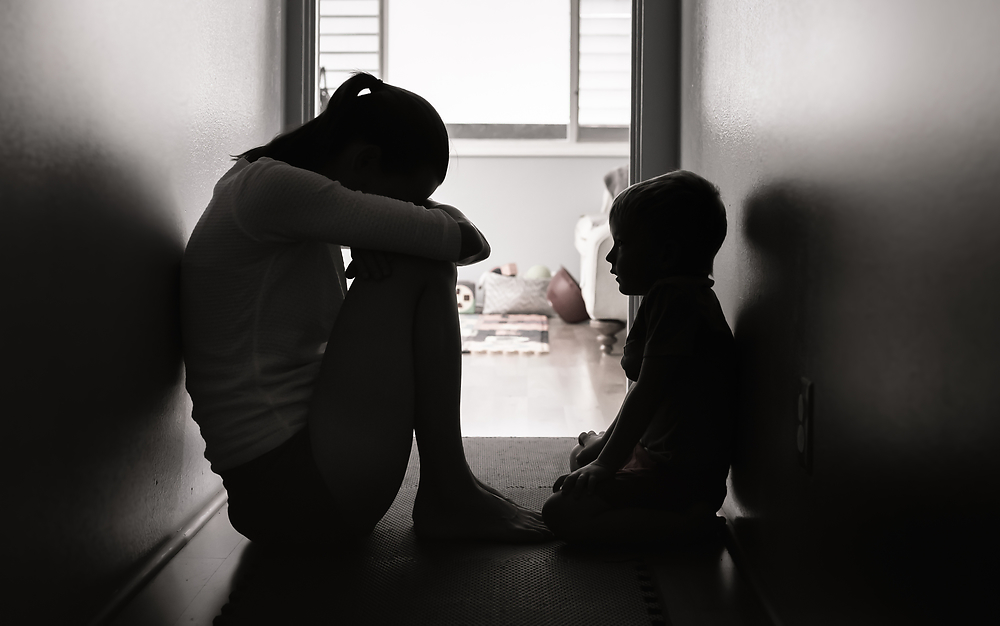November 01, 2022 | Press Release
Mental Health of Single Mothers: Why Looking at the Pathways into Single Motherhood and Later Partnership Status Matters

© iStockphoto.com/kieferpix
Separation and widowhood affects the mental health of women and those who then become single mothers have an especially long lasting and harmful impact. These are the findings in a recent study by MPIDR Researcher Mine Kühn and colleagues which analyzes up-to-date Finnish register data.
“Single mothers are a heterogenous group. That is why we investigated three pathways into single motherhood: separation, widowhood, and giving birth when single. We compared the prevalence of antidepressant use among single mothers before and after they became a single mother with that of women who also experienced separation, widowhood, or childbirth but without becoming a single mother”, says Mine Kühn, a Research Scientist at the Max Planck Institute for Demographic Research (MPIDR) in Rostock, Germany. By doing this, the researcher and her co-authors were able to distinguish the effects of these life events on women’s mental health independent of whether they were a single mother or not.
“Additional stress and hardship associated with bringing up a child alone”
The results for all women who separated showed that among those who became single mothers, there was a substantial increase in antidepressant use at the time of separation, and only a moderate decline in use after separation. “This demonstrates the additional stress and hardship associated with bringing up a child on your own,” says Mine Kühn.
Among women who experienced widowhood, those who had children under 18 initially had lower antidepressant use than women without children, but this gap narrowed after becoming a widow. This means that widowed women with children have a longer exposure to antidepressant medications, whereas widows without children have only short-term use.
Women who were single when they gave birth were identified as a vulnerable group who had relatively high pre-pregnancy and post-birth levels of antidepressant use.
Better mental health makes it easier to find a new partner
“Furthermore, we evaluated the impact of re-partnering on the mental health of women by comparing women who stayed single and women who re-partnered,” says Mine Kühn. Women who re-partnered within five years of the separation had lower antidepressant prevalence in the post-separation period than those who did not re-partner. However, we also observed lower prevalence for this group in the period before the separation occurred. “Therefore our results suggest that re-partnering is beneficial for women’s and especially single mothers' mental health, and in fact, better mental health makes it easier to find a new partner”, says Mine Kühn.
The researchers used register data of the total Finnish population for the period from 1995 to 2018. It included all women who were between 15 and 64 years old during that time and experienced a separation, became a widow, or gave birth. This adds up to 616,762 women who separated, 43,355 widowed women, and 515,756 women who gave birth.
Mine Kühn concludes: “My co-authors and I aim to raise awareness among policymakers as our findings emphasize the need to consider different pathways into single motherhood when planning interventions to support the mental health of single mothers since the levels of social support they already receive and their demands for support might differ.” Finland is considered to be quite an egalitarian society, nevertheless the researchers show that the mental health of women declines after becoming single mothers. “In less egalitarian societies like in Western and Central Europe the consequences of separation on the mental health of single mothers might even be stronger”, concludes Mine Kühn. However, a comparable analysis could not be made for other European countries, as suitable data were lacking.
Original Publication
Kühn, M., Metsä-Simola, N., Martikainen, P.: Pathways into single motherhood, re-partnering, and trajectories of antidepressant medication purchases. Social Psychiatry and Psychiatric Epidemiology (2022). DOI: 10.1007/s00127-022-02371-2
Authors and Affiliations
Mine Kühn, Max Planck Institute for Demographic Research, Rostock
Niina Metsä-Simola, University of Helsinki
Pekka Martikainen, Max Planck Institute for Demographic Research, Rostock, University of Helsinki, University of Stockholm